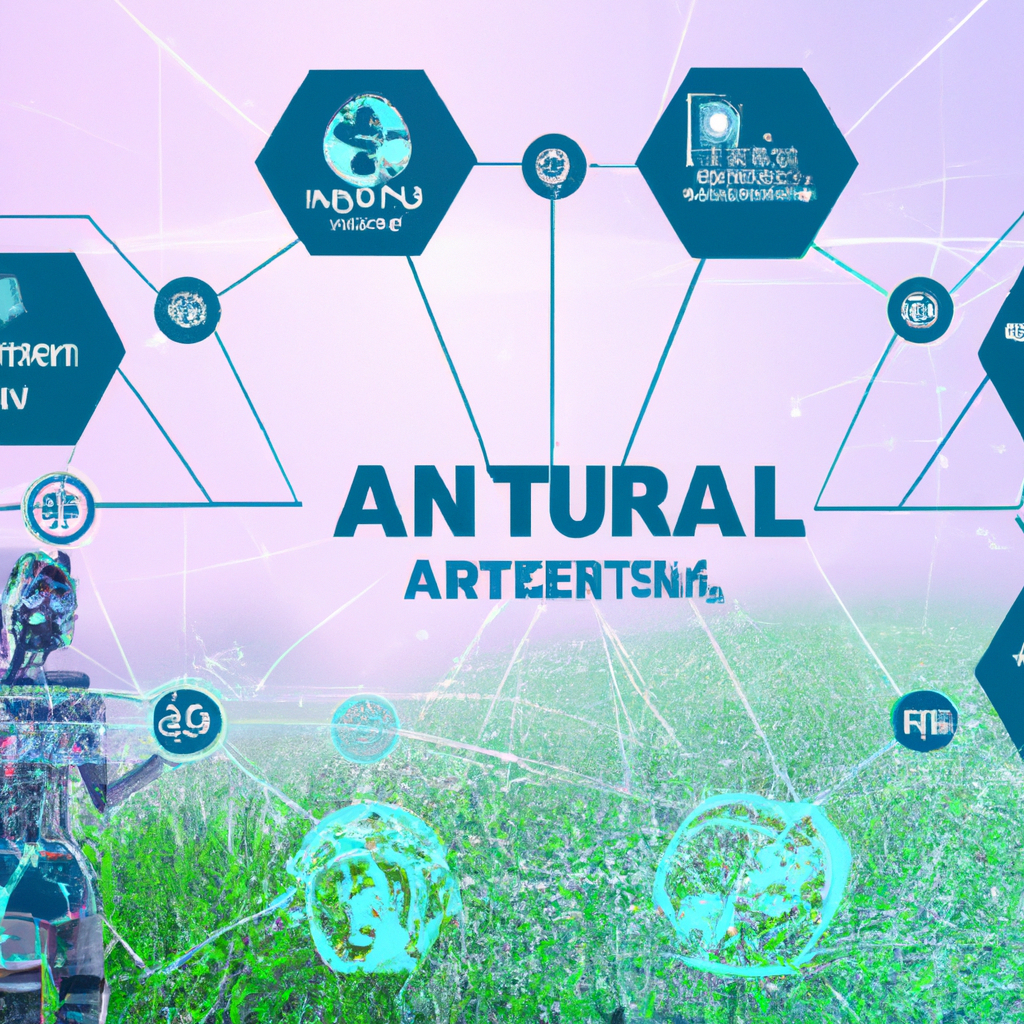-
Table of Contents
- Introduction
- How AI is Helping Companies Reduce Their Carbon Footprint
- Exploring the Benefits of AI-Driven Sustainable Agriculture
- The Impact of AI on Green Energy Production
- How AI is Transforming the Way Companies Manage Waste
- The Role of AI in Developing Sustainable Business Strategies
- Conclusion
“Unlock the Power of AI to Create a Sustainable Future for Businesses and the Planet.”
Introduction
The role of Artificial Intelligence (AI) in sustainable business practices is becoming increasingly important as businesses strive to reduce their environmental impact and become more sustainable. AI can be used to optimize energy use, reduce waste, and improve agricultural practices. AI can also be used to develop new products and services that are more sustainable and efficient. AI can help businesses reduce their carbon footprint, increase their efficiency, and create a more sustainable future. This article will explore the role of AI in sustainable business practices, from green energy to sustainable agriculture.
How AI is Helping Companies Reduce Their Carbon Footprint
As the world continues to grapple with the effects of climate change, companies are increasingly looking for ways to reduce their carbon footprint. Fortunately, artificial intelligence (AI) is helping to make this process easier and more efficient.
AI can be used to analyze data and identify areas where companies can reduce their energy consumption. For example, AI can be used to detect inefficiencies in energy usage and suggest ways to reduce energy consumption. AI can also be used to monitor energy usage in real-time and alert companies when energy usage is higher than expected. This allows companies to take corrective action quickly and reduce their energy consumption.
AI can also be used to optimize production processes. By analyzing data from production processes, AI can identify areas where energy consumption can be reduced. For example, AI can be used to identify areas where production processes can be automated, which can reduce energy consumption. AI can also be used to identify areas where production processes can be optimized, which can also reduce energy consumption.
AI can also be used to identify areas where companies can switch to renewable energy sources. By analyzing data from energy sources, AI can identify areas where renewable energy sources can be used to replace traditional energy sources. This can help companies reduce their carbon footprint and move towards a more sustainable future.
Overall, AI is helping companies reduce their carbon footprint in a variety of ways. By analyzing data and identifying areas where energy consumption can be reduced, companies can take steps to reduce their carbon footprint and move towards a more sustainable future.
Exploring the Benefits of AI-Driven Sustainable Agriculture
As the world’s population continues to grow, so does the need for sustainable agriculture. Fortunately, advances in artificial intelligence (AI) are helping to make sustainable agriculture more achievable. AI-driven sustainable agriculture is revolutionizing the way farmers grow crops, manage resources, and protect the environment.
AI-driven sustainable agriculture is helping farmers to maximize their yields while minimizing their environmental impact. By using AI-driven technologies, farmers can monitor their crops more closely and make more informed decisions about when and how to irrigate, fertilize, and harvest. AI-driven technologies can also help farmers to identify and address potential problems before they become serious.
AI-driven sustainable agriculture is also helping farmers to conserve resources. AI-driven technologies can help farmers to optimize their irrigation systems, reduce water waste, and identify areas where water conservation is needed. AI-driven technologies can also help farmers to identify and address potential problems with soil health, such as nutrient deficiencies and soil erosion.
AI-driven sustainable agriculture is also helping farmers to protect the environment. AI-driven technologies can help farmers to identify and address potential problems with air and water pollution, as well as identify areas where conservation efforts are needed. AI-driven technologies can also help farmers to identify and address potential problems with pests and diseases, as well as identify areas where pest and disease control efforts are needed.
The benefits of AI-driven sustainable agriculture are clear. By using AI-driven technologies, farmers can maximize their yields while minimizing their environmental impact. AI-driven technologies can also help farmers to conserve resources, protect the environment, and identify and address potential problems before they become serious. With AI-driven sustainable agriculture, the future of farming looks brighter than ever.
The Impact of AI on Green Energy Production
The use of artificial intelligence (AI) in green energy production is revolutionizing the way we generate and use renewable energy. AI is helping to make green energy production more efficient, cost-effective, and reliable.
AI can be used to optimize the production of green energy. AI-driven algorithms can analyze data from various sources, such as weather forecasts, to predict the most efficient times to generate energy. This helps to ensure that energy is produced when it is most needed and that it is used in the most efficient way possible. AI can also be used to optimize the placement of solar panels and wind turbines, ensuring that they are placed in the most effective locations.
AI can also be used to improve the reliability of green energy production. AI-driven algorithms can monitor the performance of solar panels and wind turbines, and alert operators when there is a problem. This helps to ensure that any issues are addressed quickly, reducing downtime and increasing the reliability of green energy production.
AI can also be used to reduce the cost of green energy production. AI-driven algorithms can analyze data from various sources, such as energy usage patterns, to identify ways to reduce energy costs. This helps to ensure that green energy production is as cost-effective as possible.
In conclusion, AI is revolutionizing the way we generate and use renewable energy. AI is helping to make green energy production more efficient, cost-effective, and reliable. As AI technology continues to develop, we can expect to see even more improvements in green energy production in the future.
How AI is Transforming the Way Companies Manage Waste
As the world continues to grapple with the effects of climate change, companies are increasingly looking for ways to reduce their environmental impact. One of the most effective ways to do this is to manage waste more efficiently. Fortunately, artificial intelligence (AI) is transforming the way companies manage waste, making it easier and more efficient than ever before.
AI-powered waste management systems are designed to help companies identify and track waste streams, analyze data, and make decisions about how to reduce waste. By using AI to monitor and analyze waste streams, companies can identify areas where waste is being generated and develop strategies to reduce it. For example, AI can be used to detect when a waste stream is reaching a critical level and alert the company to take action.
AI can also be used to optimize waste collection and disposal. By analyzing data from waste collection and disposal systems, AI can identify areas where waste is being generated and suggest ways to reduce it. For example, AI can be used to identify areas where waste is being generated and suggest ways to reduce it, such as by reducing the amount of packaging used or by encouraging recycling.
Finally, AI can be used to improve the efficiency of waste management systems. By analyzing data from waste collection and disposal systems, AI can identify areas where waste is being generated and suggest ways to reduce it. For example, AI can be used to identify areas where waste is being generated and suggest ways to reduce it, such as by reducing the amount of packaging used or by encouraging recycling.
AI is revolutionizing the way companies manage waste, making it easier and more efficient than ever before. By using AI to monitor and analyze waste streams, companies can identify areas where waste is being generated and develop strategies to reduce it. AI can also be used to optimize waste collection and disposal, as well as improve the efficiency of waste management systems. With AI, companies can reduce their environmental impact and make a positive contribution to the fight against climate change.
The Role of AI in Developing Sustainable Business Strategies
As businesses strive to become more sustainable, artificial intelligence (AI) is playing an increasingly important role in helping them develop effective strategies. AI can help businesses identify areas of improvement, optimize processes, and develop innovative solutions that reduce their environmental impact.
AI can be used to analyze data and identify patterns that can help businesses identify areas of improvement. For example, AI can be used to analyze energy usage data to identify areas where energy efficiency can be improved. AI can also be used to analyze customer data to identify opportunities for reducing waste and increasing sustainability.
AI can also be used to optimize processes and develop innovative solutions. AI can be used to automate processes, such as scheduling and routing, to reduce energy consumption and waste. AI can also be used to develop new products and services that are more sustainable. For example, AI can be used to develop new materials that are more sustainable and efficient.
Finally, AI can be used to develop strategies for reducing the environmental impact of businesses. AI can be used to analyze data and identify areas where businesses can reduce their carbon footprint. AI can also be used to develop strategies for reducing water and energy consumption, as well as strategies for reducing waste.
In conclusion, AI is playing an increasingly important role in helping businesses develop sustainable strategies. AI can be used to analyze data, optimize processes, and develop innovative solutions that reduce their environmental impact. By leveraging AI, businesses can become more sustainable and efficient, while also reducing their environmental impact.
Conclusion
The Role of AI in Sustainable Business Practices is an important one. AI can help businesses reduce their environmental impact by providing more efficient and cost-effective solutions for green energy, sustainable agriculture, and other sustainable practices. AI can also help businesses identify and address potential risks and opportunities associated with sustainability. AI can help businesses make better decisions and create more sustainable business models. AI can also help businesses reduce their carbon footprint and increase their sustainability. Ultimately, AI can help businesses become more sustainable and contribute to a more sustainable future.




